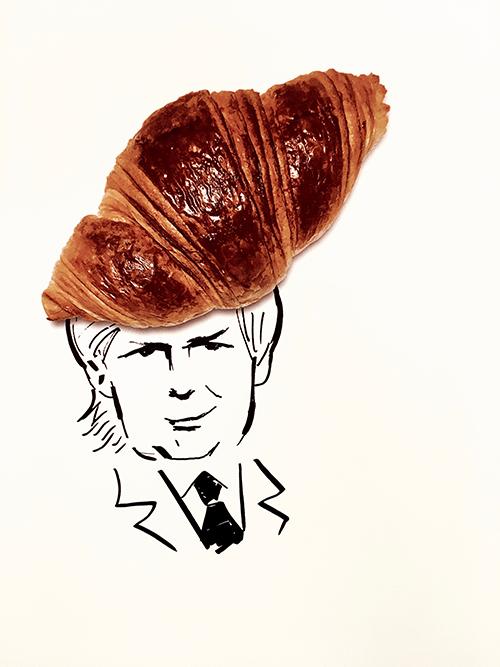Cultural Criticism and Croissants
Also known as Tango, Gao Youjun is an artist of modern-day masterpieces and have an exhibition titled “Dream On” at Chelsea Market.
October 5, 2016
When Gao Youjun, also known as Tango, started a “drawing-a-day” blog to satisfy a bet in 2010, he never expected his sketches to become modern-day masterpieces. The feeling of seeing the modern world through Tango’s sketches is like being handed a backstage pass. Imagine you are at a concert. The sea of people moves with the music as everyone tries as hard as possible to see the band. But your experience is disrupted by the towering physique of a 6’6’’ giant directly in your view.
Titled “Dream On,” Tango’s exhibition at Chelsea Market showcases some of his most prized sketches and illustrations. These almost cartoonish images were simply displayed one on top of another, with no clear divisions to suggest where one idea ends and another begins.
However, this disorienting presentation is an effective way to communicate Tango’s ideas and overall worldview. The physically black-and-white canvases are parallel to Tango’s similarly black-and- white humor about modern society and the world we live in. While it can be stark and unforgiving, Tango believes our best chance at survival is to never forget how to laugh.
Commenting on everything from the taste of soda to mental illness, Tango uses his fresh, authentic perspective to illuminate some of the subconscious societal problems we as human beings experience everyday. His animated objects personify abstract, difficult-to-grasp ideas.
For example, the stasis of marriage, instead of taking on an ominous or serious tone, is expressed through the fingers of the hand at a cocktail hour, with the remaining four fingers comforting the poor ring finger. Animate objects also take on inanimate transformations, like Donald Trump’s hair becoming an all-too lifelike croissant. Just looking at it makes viewers hungry; it works so well with the narrative, yet communicates such a powerful political stance.
By calling us out on our own bad behavior through light-hearted sketches, viewers don’t feel attacked or belittled, but rather as if they are looking at themselves and their life through a new lens, seeing everything more clearly. In this way, Tango’s commentary relates to people everywhere, no matter your race, language or capacity for artistic analysis. His sketches need no grammatical rules or cultural context because they deal with human nature itself, and our universal experience living in this global machine.
Email Emily Conklin at [email protected].























































































































































